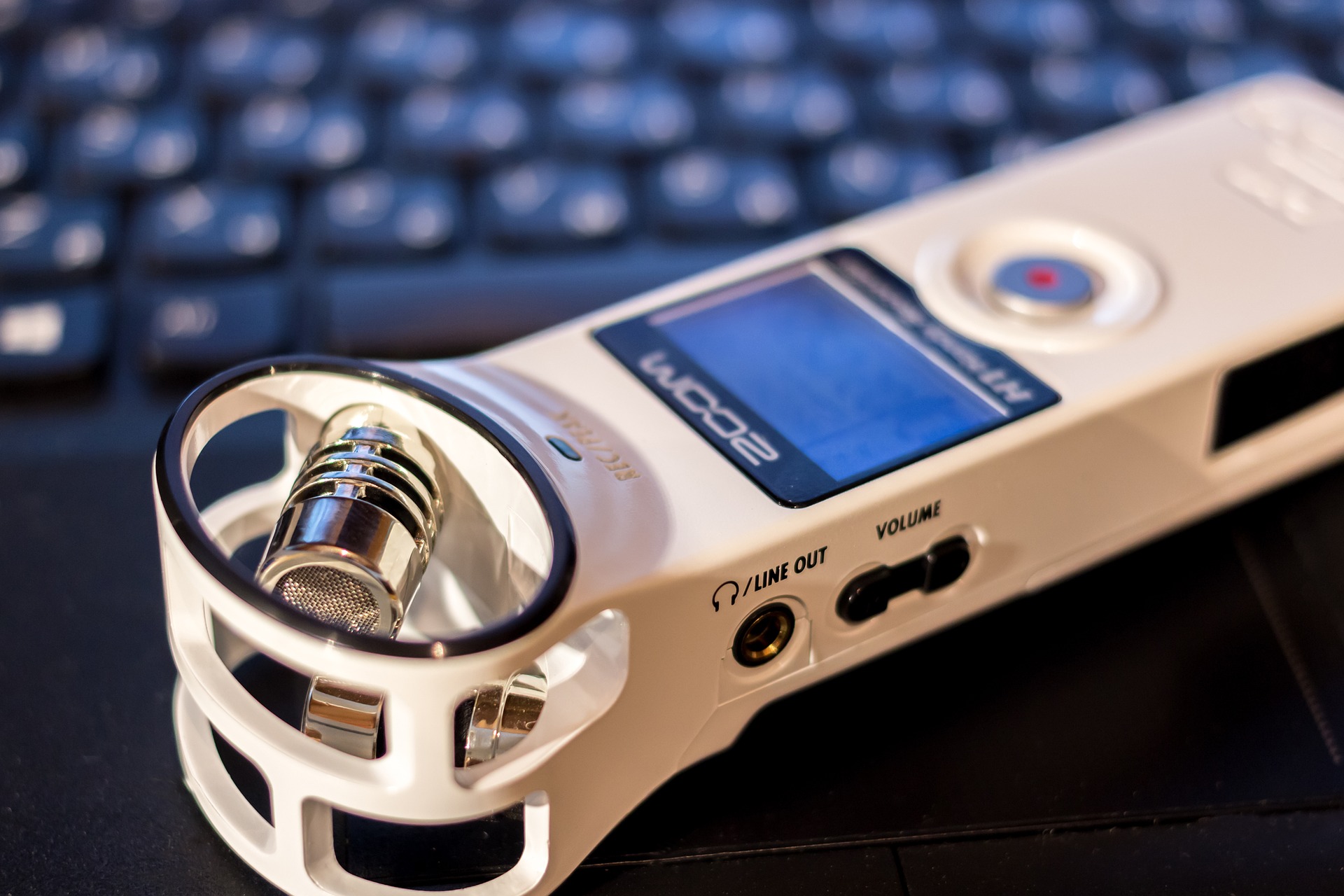
August’s Topic of the Month – Studying with Lupus
 September 01st, 2017
September 01st, 2017 Nakita Cambow
Nakita Cambow Blog
Blog 0 Comments
0 Comments
If you have a diagnosis of lupus or an associated condition you may not consider yourself to be disabled, but you may need certain facilities, assistive technology or support services to enable you to make the most of your studies. Your education provider (school, college or university) is required to make reasonable adjustments such as this according to the Equality Act 2010.
What types of adjustments are available?
The types of adjustments an individual may need or benefit from are likely to vary due to the different presentation of lupus symptoms in each person. This section will provide suggestions of the adjustments you may need while studying. It is not a definitive list and the adjustments are not listed in any order of priority. What is considered a ‘reasonable adjustment’ will depend on individual circumstances.
“I feel like I was incredibly lucky with my university, they gave me wonderful amounts of support.”
General adjustments
- You should be able to access all facilities offered by your education provider.
- Staff and students who know about your condition should have sufficient information and awareness about any adjustments you may need.
- Adequate financial support to cover any extra costs incurred by your disability.
- Additional time to complete any coursework, exams, and possibly the entire course.
- Support using the learning resource centre or library, e.g. extended book loans, or help with locating and retrieving books and articles.
- Support and information before and during any admissions process.
- Access to any Disabled Students’ representatives.
- Access to any relevant documents for your education provider in your preferred format. (For example; students’ handbook, evacuation and safety procedures, equal opportunities policy).
- Awareness training for staff relating to your specific disability or impairment.
- Arrangements for specific accommodation (if living on campus).
–
General access arrangements
When you need adjustments to exams, these are called ‘access arrangements’. Below are some examples of the access arrangements you may need when you’re taking exams or assessments. Most education providers and examining bodies will have made exam arrangements for individual students before but they may not have come across all possible arrangements as support needs vary from person to person.
 You may need extra time or opportunities to take rest breaks during exams.
You may need extra time or opportunities to take rest breaks during exams.- You may need exam papers in your preferred format.
- If you use assistive technology on your course, you should be able to use it for your exams e.g. computer equipment, specialist software, a reader or a scribe. It’s important that technical support is on hand in case there are any problems with equipment.
- You may need to use a separate room so that you’re not disturbed by other candidates, and they are not disturbed by you.
- You may need assistance from another person as a prompter, a scribe or as a reader.
- Your assistant should have time before the exam to get used to their role, the style, and format of the test and any subject-related issues.
–
“I have been really lucky with my university (University of Plymouth), they have been great. I am dyslexic as well as having lupus, but they would have given me extra time and ‘stop the clock’ breaks during exams for chronic fatigue. They also have a chronic ill health form that my doctor fills out and I don’t need evidence for applying for extenuating circumstances if I need to hand in coursework late or sit an exam in the summer instead if I’m unwell.”
Adjustments specific to your condition
In addition to the general arrangements and access arrangements above, there may be other adjustments you need specifically relating to your lupus (and/or overlapping conditions).
Access/support
- Arrangements to meet specific dietary needs, e.g. use of a fridge.
- Place of privacy to take medication and assistance if required.
- Quiet room to rest in.
- Medical support and emergency arrangements.
- Designated parking space.
- Support from welfare and counselling staff.
- Named contact to go to for support when necessary.
- Physically accessible classrooms, exam rooms, study spaces, toilets, catering and leisure facilities and telephones.
- Personal assistants or mobility helpers.
- Support for practical and field work.
- Particular travel arrangements.
- Well-ventilated classrooms if heat leads to discomfort – alternatively, if you have Raynaud’s phenomenon you may need well-heated classrooms without a draft to prevent attacks.
–
Equipment

- Specialist or adapted computer equipment, e.g. a screen filter if you are photosensitive.
- Adapted furniture for studying at home or college and use of these in exams.
- Powered wheelchair and facilities for charging it.
- Assistive technology such as a switch-operated or voice- activated computer.
- A scanner.
- Typing or transcription services.
–
Flexibility/Planning
 Alternative arrangements for work and deadlines if fatigue, stress and effects of medication are an issue.
Alternative arrangements for work and deadlines if fatigue, stress and effects of medication are an issue.- Timetable planning to work around fatigue/stress etc. This may include limiting the number of exams in a day or week and should also take into account accessibility and avoid needing to travel long distances.
- Contact from staff during any periods of time away from studies.
- Flexibility in attendance and punctuality if treatments or therapies are tightly scheduled.
- Supplying notes or arrangements for catch up sessions if you miss lectures/lessons.
- Extra support and help with planning before or during exam and assessment periods.
- Additional time at mealtimes for medical needs.
- Use of a separate room, with an invigilator, if using equipment or taking frequent rests because of fatigue.
- Alternative ways of demonstrating competency, for example through oral responses instead of written.
–
Awareness/Education
- Ongoing dialogue with staff if your lupus tends to be ‘invisible’ and/or fluctuates.
- Maintenance of confidentiality regarding your condition.
- All exam invigilators to be aware of your impairment so they know what to do in a medical emergency.
- Exam officers to be aware that problems may arise during exam periods.
- Academic staff to be clear about what they expect from you.
–
Advance Planning
 It is important to let your education provider know if you need any adjustments to make the course accessible to you. The earlier they know, the sooner they can make changes or provide support.
It is important to let your education provider know if you need any adjustments to make the course accessible to you. The earlier they know, the sooner they can make changes or provide support.
You can discuss your particular requirements and how to arrange them with the staff member responsible for supporting disabled students at the place where you study (or plan to study). They might be called the Disability Adviser, Additional Learning Support Co-ordinator or something similar. You can search for the contact details of disability advisers at colleges and universities throughout the UK HERE.
It‘s also important to let your education provider know about any access arrangements you may need for exams or assessments. If you’re doing an exam validated by an external examining body, the education provider will need to contact them to make the access arrangements. If you don’t give enough notice, you may be refused the arrangements you request.
“I had a fantastic experience as a mature student. St Andrews University assigned me a Disabled Advisor in Student Services who helped me with everything in relation to Disabled Student Allowance from SAAS. He also helped me get the equipment I need to study and provided a note taker in lectures, but I found that it was easier recording the lectures on a dictaphone, which everyone supported. When I was in hospital the university allowed me extensions on exams/assignments.”
Is there any extra funding available?
Higher education
 If you have lupus and you are studying in higher education, you may be eligible for Disabled Students’ Allowances (DSAs). These allowances cover extra disability-related costs or expenses you have while studying which are over and above those provided as reasonable adjustments by the college or university.
If you have lupus and you are studying in higher education, you may be eligible for Disabled Students’ Allowances (DSAs). These allowances cover extra disability-related costs or expenses you have while studying which are over and above those provided as reasonable adjustments by the college or university.
There are four allowances to cover different areas of need;
– Specialist equipment allowance
– Non-medical helper’s allowance
– General and other expenditure allowance
– Travel costs
You can learn how to apply for DSAs HERE.
For more information about DSAs, Disability Rights UK has a very detailed factsheet available HERE.
“I underwent an assessment when applying. This was arduous and required submitting a lot of paperwork but was well worth the effort. I was assessed at a centre and they made recommendations that were also passed on to the university. As part of the original assessment I was told I would be able to get a laptop and an ergonomic desk. I was also offered Dragon software on my computer and ClaroRead which I have used when my hands are too tired to type; it has been a great help. I also got a back rest for my chair to make it more ergonomic.”
Further education
If you’re aged between 16 and 19 years and think you might struggle with the costs for full-time education or training you may be able to receive a bursary. The 16-19 Bursary Fund scheme has two types of awards;
1. A bursary of £1,200 per year if you’re considered to be vulnerable – Your eligibility will depend upon your circumstances and benefits (such as Personal Independence Payments (PIP) or Employment & Support Allowance (ESA)). If you qualify your school or college will pay this.
2. A discretionary bursary – You could get a discretionary bursary if you need financial help but don’t qualify for a vulnerable student bursary. This can include if you’re struggling with the costs of transport, meals, books and equipment. Your college or training provider is responsible for deciding who is eligible, how much to pay and how regularly to pay it. They’ll usually want to see evidence, for example a letter about your benefits.
To apply for this bursary fund scheme you can ask student services or your tutor to explain what you need to do. The application will be directly to your education provider.
Charitable trusts
If you are unable to get the funding you need to do a course from official or statutory sources, you may wish to consider applying to charitable trusts. Disability Rights UK have an excellent factsheet with advice for applying to charitable trusts HERE.
Making your education provider aware of your lupus
 It can be hard to tell people about you and your needs as a student. If you have a diagnosis of lupus you may not want people to know. Lupus is often a condition that other people cannot see and some people may worry that if they tell their university or college they may be treated differently. Only you can decide what you want to do and what is best.
It can be hard to tell people about you and your needs as a student. If you have a diagnosis of lupus you may not want people to know. Lupus is often a condition that other people cannot see and some people may worry that if they tell their university or college they may be treated differently. Only you can decide what you want to do and what is best.
One positive reason to tell people is so you can get the right support. As mentioned previously, education is covered by the Equality Act and education providers are required to make reasonable adjustments to help support those who need it. Universities and colleges should give you lots of chances to tell them about your needs. This should happen when you first apply and also later when you start your course. There should be a person at the university or college to help you and give you support.
“Let your teachers/professors/school know about your condition. Not as a victim, but “Hey, I try my best but sometimes it’s more difficult than usual”. They will see a different student, and they need to understand why. It’s not easy to look normal when you’re sitting in a classroom and feeling sick after taking medication.”
If you do decide to tell your education provider about your lupus, here are some key points you may want to consider;
- Don’t think the education provider will see it as a bad thing.
- This might be the first time you have had to tell a new place or person you have lupus, but remember that the college or university will have had lots of people with long-term health conditions and disabilities studying with them before. Telling people about having a long-term health condition can be a good thing and give you more control. Knowing about living with a condition like lupus could be a strength that the college or university could benefit from.
- Think of what you have learned from having lupus.
- Think about all the things you have learned through being diagnosed with lupus. What skills could you use on your course? Some application forms ask you questions about things you are good at and things you are not so good at. You can use these things as a good example of how to turn a negative into a positive. For example, you might have become very good at time management because you have to pace yourself and conserve your energy levels. Being honest about yourself and things you can do shows you are mature and ready to face new challenges.
- Don’t just focus on your lupus in your interview.
- Try to be positive and enthusiastic in your interview. Don’t focus on hard things about having lupus. Of course there may be many, but the interview is to find out about you and all the things you can do.
If you need information about lupus to provide your tutor or teacher with, LUPUS UK has publications that are available free of charge. You can read and download them HERE, or contact us to request physical copies to be posted to you.
LUPUS UK also has an information sheet, primarily aimed at school teachers, which you can download and print HERE.
“I was supported by the Disabilities and Additional Needs (DANS) department at Loughborough University, the Engineering Foundation Year team and the Physics Department. Without the help of the people in these teams I would never have managed to get a degree, let alone a 2:1! I was very ill at university and at this time we didn’t know why. It later transpired that I have lupus (SLE) and I have undergone various treatments for this. After leaving university I got a fantastic job which I love and I am forever grateful to all those who helped me to get my degree and supported me when I was so ill. For anyone looking to study a degree, I can highly recommend Loughborough University as they treat everyone as an individual and go out of their way to provide the support you need. All in all, it was the best experience of my life.”
Looking after yourself
Moving away from home
 If you are going to a college or university outside of your home town/city then you may need to consider transferring to a new healthcare team who will be more accessible to where you’ll be living. This may involve registering with a local GP and possibly being referred to a new rheumatology team. It is worth discussing this with your GP, rheumatologist and any other members of your healthcare team as early as possible.
If you are going to a college or university outside of your home town/city then you may need to consider transferring to a new healthcare team who will be more accessible to where you’ll be living. This may involve registering with a local GP and possibly being referred to a new rheumatology team. It is worth discussing this with your GP, rheumatologist and any other members of your healthcare team as early as possible.
Stress
 Many studies have suggested that lupus can flare during times of stress. This has been shown to occur with major stressful events (such as exams) as well as with regular stress (such as ‘daily hassles’). It is important to be aware of stress and try to manage it effectively. If you feel that you are struggling with stress it is important to discuss this with your GP and with your education provider to see what adjustments can be made.
Many studies have suggested that lupus can flare during times of stress. This has been shown to occur with major stressful events (such as exams) as well as with regular stress (such as ‘daily hassles’). It is important to be aware of stress and try to manage it effectively. If you feel that you are struggling with stress it is important to discuss this with your GP and with your education provider to see what adjustments can be made.
It is worth bearing in mind that certain lupus symptoms, such as having difficulty with memory (brain fog), have been associated with increased amounts of stress as well and this could impact your ability to study effectively at times.
For tips on managing stress, please take a look at our previous blog article HERE.
“Trying to balance work, life and family (I am a mature student) can be difficult. I am not good at pacing myself at the best of times but have tried to make the most of good spells (without overdoing it) knowing that a bad patch might occur and throw things into turmoil. When I needed extra time for my work having “lost” several weeks to a setback, the procedures set in place by the university worked well.”
Staying healthy
 Maintaining a healthy, balanced diet and regular exercise may not be the first thing on your mind when starting at a new college or university, especially when you might be on a tight budget. It is especially important to take care of yourself in these ways if you have lupus to make you less susceptible to the effects of stress and reduce the chances of triggering a flare. We have a blog article about healthy eating HERE, and an article about exercising with lupus HERE. NHS choices have 20 great tips on how to eat well on a budget, HERE.
Maintaining a healthy, balanced diet and regular exercise may not be the first thing on your mind when starting at a new college or university, especially when you might be on a tight budget. It is especially important to take care of yourself in these ways if you have lupus to make you less susceptible to the effects of stress and reduce the chances of triggering a flare. We have a blog article about healthy eating HERE, and an article about exercising with lupus HERE. NHS choices have 20 great tips on how to eat well on a budget, HERE.
During the first few weeks of university or college there is an increased risk of catching viruses (fresher’s flu) due to people from many different areas coming together with various strains that you may not be immune to. If you feel any symptoms of a virus it is important to make your doctor aware if you are taking an immunosuppressant treatment (such as high-dose steroids, azathioprine, methotrexate, mycophenolate mofetil, cyclophosphamide or rituximab) as you may need antibiotics/antivirals.
“I wrote a blog post about tips I learnt from completing my Master’s degree after being diagnosed with lupus – https://insideamindblog.wordpress.com/2017/07/13/tips-for-being-a-student-with-lupus/. I think time management with assignments (such as keeping a diary/timetable, studying in the day to allow myself evenings and weekends free), healthy diet, and making sure friends and tutors know in case of any health blips and for support are what I found most helpful!”
Telling friends about your lupus
 What you choose to tell your friends about your lupus is up to you. You may only want to tell your very close friends. Some people may choose not to tell anyone about their disease. Remember that if no one knows about your lupus, it is difficult for them to be able to help. Often giving a simple explanation is all that is needed. For example, “I have lupus, which is an illness that causes a skin rash, joint pain and makes me get very tired sometimes”.
What you choose to tell your friends about your lupus is up to you. You may only want to tell your very close friends. Some people may choose not to tell anyone about their disease. Remember that if no one knows about your lupus, it is difficult for them to be able to help. Often giving a simple explanation is all that is needed. For example, “I have lupus, which is an illness that causes a skin rash, joint pain and makes me get very tired sometimes”.
“Have at least one classmate who you can trust and tell about your condition. At university I had one classmate that helped me to go downstairs and took me to hospital many times. Also, when working as a group my classmate knew about my lupus fog and fatigue, or why I needed her notes, and why I missed class.”
Further advice
 Loads of additional advice and information about topics such as alcohol, smoking, drugs and sexual health can all be found in our booklet, ‘My Lupus: What I Need to Know (A Young Person’s Guide)’. The booklet is available to read and download HERE or you can contact us to request a physical copy.
Loads of additional advice and information about topics such as alcohol, smoking, drugs and sexual health can all be found in our booklet, ‘My Lupus: What I Need to Know (A Young Person’s Guide)’. The booklet is available to read and download HERE or you can contact us to request a physical copy.
Further support and information
Disability Rights UK Student helpline
For further information on the support that is available for students who are disabled or have long-term health conditions you can contact the Disabled Students Helpline on 0800 328 5050.
Disability Rights UK also produces a range of education factsheets covering various subjects and frequently asked questions which you can access through the education and skills section of their website.
UCAS – Information for students with disabilities and/or long-term health conditions
https://www.ucas.com/ucas/undergraduate/getting-started/individual-needs/disabled-students
National Union of Students (NUS) – Disabled Students’ Campaign
https://www.nusconnect.org.uk/liberation/disabled-students
***Please note that this article is written for informational purposes only and should not be a substitute for professional medical advice or treatment. Do not delay seeking or disregard medical advice based on information here. Always seek the advice of your local family physician or other qualified health professional before starting any new treatment or making any changes to existing treatment. It is also advisable to consult a medical professional before making any changes to diet or starting complementary remedies, which may interact with other medications.***
Thank you so much to everyone who submitted their tips and experiences for this month’s topic. We’re sorry if we weren’t able to use your comment in the article this time.



 ©2024 LUPUS UK (Registered charity no. 1200671)
©2024 LUPUS UK (Registered charity no. 1200671)